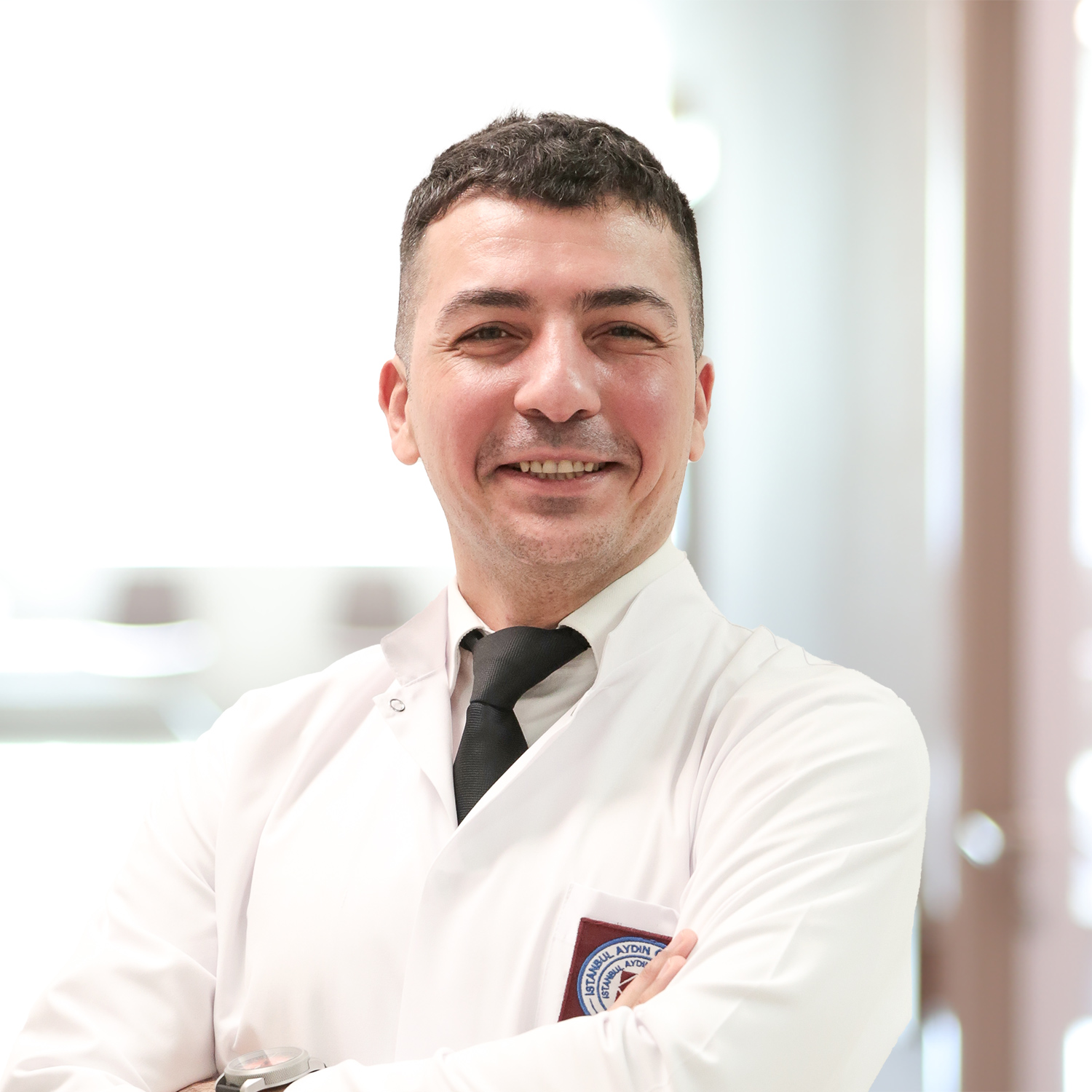Kidney Transplant Center
Make an Appointment
Online Schedule
IntroductionComplete loss of kidney function
and the need for dialysis and a kidney transplant are the hallmarks of end-stage renal failure. One kidney from a donor is surgically transferred to the patient during a kidney transplant. It is possible to transplant a kidney from a deceased or living donor.
Services for Diagnosis and Treatment at the Kidney Transplant Center
The diagnosis and treatment services provided by Turquoise Medical Kidney Transplant Centers are based on a multidisciplinary approach in the disciplines of radiology and anesthesiology and are available for both adults and children.
Donor nephrectomy, which is the surgical removal of the donor’s kidney, is typically performed using the laparoscopic technique, also known as the closed approach. Select female donors who undergo transvaginal kidney removal. Patients undergoing kidney transplant surgery at Turquoise Medical Kidney Transplant Centers are postoperatively monitored by the appropriate staff of the facility regularly.
What is kidney failure at the ultimate stage?
The phrase “irreversible impairment of renal functions” refers to end-stage kidney failure. Complete loss of kidney function and the need for dialysis and a kidney transplant are the hallmarks of end-stage renal failure.
Every patient who has end-stage renal failure should be assessed for a kidney transplant! One kidney from a donor is surgically transferred to the patient during a kidney transplant. Donor kidneys can come from either a living or a deceased individual (a person with verified brain death).
What relatives are eligible to donate?
The Ministry of Health implemented the “National Organ and Tissue Transplant Coordination System” to streamline oversight and audit of the living donor organ and tissue transplantation. As a result, transplants using living donors are permitted for blood relatives up to the fourth degree (including in-law relatives).
Candidates for organ and tissue donation who meet this condition are discussed in the local ethics committee of the relevant Organ and Tissue Transplant Center, and transplant surgery is only carried out after it is confirmed that specific requirements have been met.
According to Turkish Civil Code Article 17, the number of deliveries ties kin to one another and determines the degree of blood relation for fourth-degree relations.
Depending on the degree of kinship;
a first-degree relative, such as a parent or child
Siblings, grandfather, grandmother, and grandson are second-degree relatives.
Third-degree relatives include an uncle, an aunt, a nephew, and a mother (kid of a sibling).
Children of third-degree relatives are fourth-degree relatives.
Relatives of the spouse are equally determined in in-law relationships.
Different Donors
It is possible to use the organs of a spouse who has been legally wed for two years, as well as up to four degrees of blood and in-law relations.
People without a blood connection or in-law relationship, however, can donate organs. But pertinent laws demand a thorough inquiry.
Except for the aforementioned living donors, the Ethics Committee of the city in which the transplant surgery will be done should confirm that there is no illicit connection between the donor and the receiver and that organ donation is morally acceptable.
The Provincial Health Directorate should refer both the recipient and the donor in this instance to the committee.
Who is ineligible to be a living kidney donor?
younger than 18 years old
those who utilize antihypertensive medications or who have hypertension (>140/90 mmHg).
Diabetics
250 mg of protein per 24 hours,
recurring kidney stone history,
GFR is low (80 ml/min).
microscopic hematuria
kidney urologic abnormalities
individuals with serious medical conditions (chronic lung disease, recently diagnosed cancer)
Obesity (those weighing more than 305 per cent of their ideal weight)
Thrombosis or thromboembolism in the past
people who suffer from psychological illness
Diabetes mellitus, hypertension, and renal disease run significantly in the family.
Why is kidney transplantation with living donors preferred?
For kidney transplants, a living donor is preferred. Compared to kidney removal from those who have been medically confirmed to have died, it has significant benefits for the patient.
better results immediately (Survival rate of graft: 95 per cent vs. 90 per cent)
improved long-term results (Survival of graft: 12 to 20 years vs. 8 to 9 years)
earlier renal function start and simpler patient manipulation
absence of stress related to brain death
lower likelihood of graft operating slowly over time
preparing the patient and the transplant team for the procedure
less severe immunosuppression
psychological assistance is needed as the pressure to donate a kidney from a donor who has passed away is lifted
How is the kidney that will be most suited for the transplant chosen?
The RH system has no bearing on kidney transplantation. One kidney can be donated by a person with Rh negative blood to a person with Rh positive blood. Both the donor and the recipient must have their tissue types done. It should be noted, nevertheless, that a tissue match is not essential for kidney transplants.
What exactly is a crossover transplant?
This approach is only appropriate for people without a blood type-compatible related donor. The pair of this incompatible donor and receiver is matched with another incompatible pair at organ transplant centres, provided tissue match is taken into account if a related donor offers to donate a kidney despite ABO incompatibility.
For instance, a related donor with Blood Type B who previously donated a kidney to a patient with Blood Type A now donates a kidney to a patient with Blood Type B, and the second patient’s blood Type A donor now donates a kidney to the first patient.
If there is no compatible donor, blood type A or B patients may be candidates for crossover transplantation. Here, one should be aware that individuals with Blood Type 0 or AB have a lesser likelihood of receiving a crossover transplant.
When a patient is in a coma or a vegetative condition, may an organ donor be removed?
To remove a donor organ, a person’s brain death must be confirmed. If brain death is proven, there is no hope of recovery. A person in a coma or a vegetative state, however, may still survive since their brain function has not been irreparably gone. As a result, an organ transplant cannot be performed on an unconscious patient.
How is an organ from a person whose brain death has been verified transferred?
kidney removal from a person whose brain death has been established but whose heart is still beating: The majority of the patients in this group had brain haemorrhages or cranial injuries as a result of numerous causes, such as car accidents. The majority of transplants from donors who have experienced proven brain death come from the organs of these patients.
Kidney removal from a patient whose brain death has been verified and whose heart has stopped beating: These patients’ hearts have stopped beating after brain death has been determined. When compared to patients with a beating heart and confirmed brain dead, organ supply from these people is more challenging. It is not frequently carried out in our nation.
What happens once a patient with brain dead donates their organs?
According to the applicable legislation in our nation, a deceased donor kidney transplant requires that the donor either give organs while still alive or that agreement be sought from family members after the donor’s verified brain death.
After receiving consent, the donor is taken to a critical care unit where blood compatibility and tissue compatibility are checked. Organs are transferred to recipients who are chosen from a waiting list on which pertinent patient traits and tissue types are noted. If a removed organ is going to be given to a patient in another transplant facility, the organ is given the proper storage conditions and is delivered there using the quickest method possible.
Treatments during the year.
Aliquet eget sit amet tellus cras. Facilisi cras fermentum nulla at odio eu feugiat pretium.
Sodales neque sodales ut etiam. Faucibus pulvinar integer enim volutpat ac tincidunt vitae.


Kidney TransplantIndications of kidney transplant
Frequent or no urination, irregularity in kidney enzymes.
Attention to urinary tract infections.
Transplantation of a kid from live or cadaver.
Blood tests, imaging, biopsy, ultrasonography.
Vaccination & Testing
Our Hospital provide the highest quality care to improve the health of our entire community through innovation, collaboration, service excellence, diversity and a commitment to patient safety






